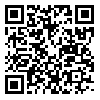Volume 11 -
IJMEHM 2018, 11 - : 189-205 |
Back to browse issues page
Download citation:
BibTeX | RIS | EndNote | Medlars | ProCite | Reference Manager | RefWorks
Send citation to:



BibTeX | RIS | EndNote | Medlars | ProCite | Reference Manager | RefWorks
Send citation to:
Zare R, Ebrahimi S. The Status of Informed Consent Process in Pediatrics’ Wards of an Educational Hospital. IJMEHM 2018; 11 :189-205
URL: http://ijme.tums.ac.ir/article-1-6035-en.html
URL: http://ijme.tums.ac.ir/article-1-6035-en.html
1- General physician, Shiraz University of Medical Sciences, Shiraz, Iran
2- Associate Professor, Department of Medical Ethics, Shiraz University of Medical Sciences, Shiraz, Iran
2- Associate Professor, Department of Medical Ethics, Shiraz University of Medical Sciences, Shiraz, Iran
Abstract: (4366 Views)
Involving children in their own treatment decision-making improves their abilities. Factors such as the ability to reason, previous children's experiences in relation to the subject as well as information, and their general understanding of the subject affect the child's ability to make decisions. The current laws of informed consent in children allow alternate decision makers to decide on their own. Our goal in this study was to examine the current conditions for the informed consent of children in to provide appropriate guidelines in this regard. In this qualitative study, participants were selected through targeted sampling. The data were collected by semi-structured interview with open questions. Coding and classification was carried out using continuous comparative analysis. Participants included 6 admitted children, 15 parents of children, and 4 pediatricians. Three general categories of "satisfaction culture", "environmental conditions", and "child world" were extracted. Parents and children were not clear about the purpose of obtaining consent. The gender of children was not significantly affected by the process of obtaining formal consent in medical settings. The existing conditions have created a non-appropriate balance in the expectations of parents regarding the treatment decisions and giving vital information and treating the child by doctors disregarding child’s competency. This defective balance can, in the meantime, cause instability and harm to human dignity and autonomy of parents and children, waste of resources, challenging the sense of trust in the community towards doctors and the lack of growth in child’s decision-making power.
Type of Study: Research |
Subject:
Medical Ethics
Received: 2018/07/23 | Accepted: 2018/10/29 | Published: 2018/04/15
Received: 2018/07/23 | Accepted: 2018/10/29 | Published: 2018/04/15
| Rights and permissions | |
 |
This work is licensed under a Creative Commons Attribution-NonCommercial 4.0 International License. |





